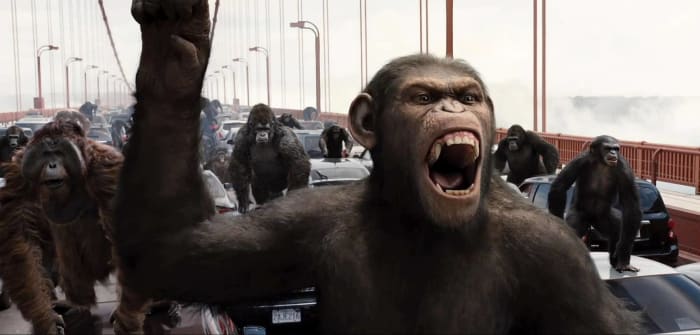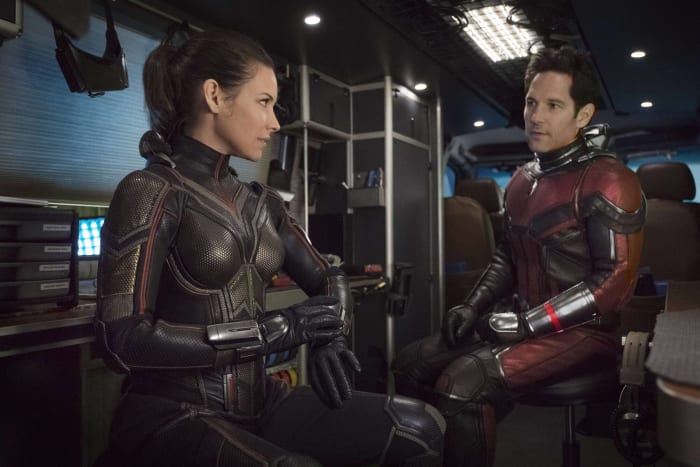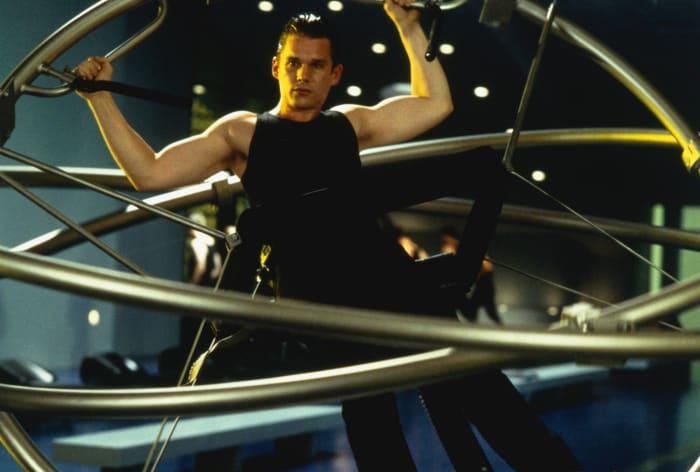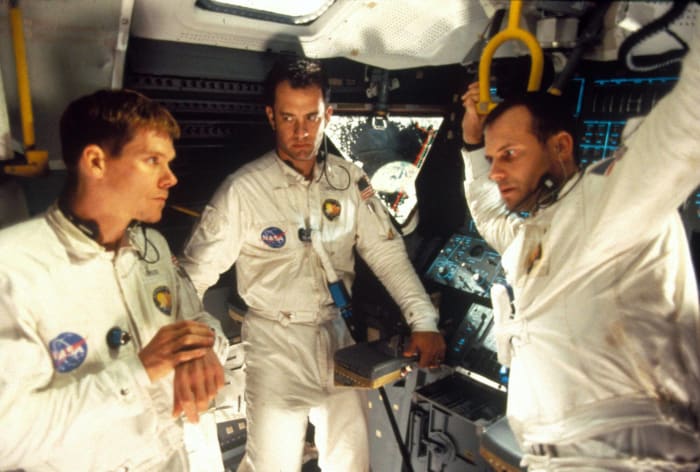- Home
- Quizzes
- My Quiz Activity
- Newsletters
- Sports Betting
- MY FAVORITES
- Add Sports/Teams
- SPORTS
-
NFL
- NFL Home
- Arizona Cardinals
- Atlanta Falcons
- Baltimore Ravens
- Buffalo Bills
- Carolina Panthers
- Chicago Bears
- Cincinnati Bengals
- Cleveland Browns
- Dallas Cowboys
- Denver Broncos
- Detroit Lions
- Green Bay Packers
- Houston Texans
- Indianapolis Colts
- Jacksonville Jaguars
- Kansas City Chiefs
- Las Vegas Raiders
- Los Angeles Chargers
- Los Angeles Rams
- Miami Dolphins
- Minnesota Vikings
- New England Patriots
- New Orleans Saints
- New York Jets
- New York Giants
- Philadelphia Eagles
- Pittsburgh Steelers
- San Francisco 49ers
- Seattle Seahawks
- Tampa Bay Buccaneers
- Tennessee Titans
- Washington Commanders
-
MLB
- MLB Home
- Arizona Diamondbacks
- Atlanta Braves
- Baltimore Orioles
- Boston Red Sox
- Chicago White Sox
- Chicago Cubs
- Cincinnati Reds
- Cleveland Guardians
- Colorado Rockies
- Detroit Tigers
- Houston Astros
- Kansas City Royals
- Los Angeles Angels
- Los Angeles Dodgers
- Miami Marlins
- Milwaukee Brewers
- Minnesota Twins
- New York Yankees
- New York Mets
- Oakland Athletics
- Philadelphia Phillies
- Pittsburgh Pirates
- San Diego Padres
- San Francisco Giants
- Seattle Mariners
- St. Louis Cardinals
- Tampa Bay Rays
- Texas Rangers
- Toronto Blue Jays
- Washington Nationals
-
NBA
- NBA Home
- Atlanta Hawks
- Boston Celtics
- Brooklyn Nets
- Charlotte Hornets
- Chicago Bulls
- Cleveland Cavaliers
- Dallas Mavericks
- Denver Nuggets
- Detroit Pistons
- Golden State Warriors
- Houston Rockets
- Indiana Pacers
- Los Angeles Clippers
- Los Angeles Lakers
- Memphis Grizzlies
- Miami Heat
- Milwaukee Bucks
- Minnesota Timberwolves
- New Orleans Pelicans
- New York Knicks
- Oklahoma City Thunder
- Orlando Magic
- Philadelphia 76ers
- Phoenix Suns
- Portland Trail Blazers
- Sacramento Kings
- San Antonio Spurs
- Toronto Raptors
- Utah Jazz
- Washington Wizards
-
NHL
- NHL Home
- Anaheim Ducks
- Arizona Coyotes
- Boston Bruins
- Buffalo Sabres
- Calgary Flames
- Carolina Hurricanes
- Chicago Blackhawks
- Colorado Avalanche
- Columbus Blue Jackets
- Dallas Stars
- Detroit Red Wings
- Edmonton Oilers
- Florida Panthers
- Los Angeles Kings
- Minnesota Wild
- Montreal Canadiens
- Nashville Predators
- New Jersey Devils
- New York Islanders
- New York Rangers
- Ottawa Senators
- Philadelphia Flyers
- Pittsburgh Penguins
- San Jose Sharks
- Seattle Kraken
- St. Louis Blues
- Tampa Bay Lightning
- Toronto Maple Leafs
- Vancouver Canucks
- Vegas Golden Knights
- Washington Capitals
- Winnipeg Jets
- NCAAF
- NCAAM
- Boxing
- Entertainment
- Lifestyle
- Golf
- MMA
- Soccer
- Tennis
- Wrestling
- More Sports
- RESOURCES
- My Account
- YB on Facebook
- YB on Twitter
- YB on Flipboard
- Contact Us
- Privacy Policy
- Terms of Service

The 20 most scientifically accurate movies
From the beginning, the film industry has been obsessed with science. It’s thus unsurprising that science fiction is one of the most enduringly popular genres, giving studios a chance to showcase their unique brand of magic and allowing audiences to explore worlds and questions outside of everyday life. Even more remarkable is the extent to which many films, even fictional ones, have drawn on scientific facts to ground fictional realities and grant them a greater verisimilitude.
'Rise of the Planet of the Apes'

The original Planet of the Apes film remains a sci-fi classic, spawning a franchise spanning decades. In 2011, fans of the films finally got the origin story they’d long wanted, and Rise of the Planet of the Apes focuses on Caesar (played in motion capture by Andy Serkis). The young chimp gains enhanced cognition due to an Alzheimer’s drug, and the stage is set for simian conquest, particularly once a virulent form of flu starts to spread across the globe. Though the film takes some liberties with established science, its depiction of various ape species is remarkably accurate, and its depiction of the spread of a pandemic hits particularly close to home in the age of COVID-19. The subsequent film, Dawn of the Planet of the Apes, is likewise decently accurate from a scientific point of view.
'Deep Impact'

The 1990s were seemingly obsessed with the idea that a meteor or asteroid might strike Earth and obliterate life as it exists. While Deep Impact might not have become the cultural phenomenon Armageddon was, it is surprisingly accurate regarding science, particularly the type of devastation a comet crashing into the Atlantic could cause. Combined with the film’s extensive special effects, this accuracy gives Deep Impact the feeling of something that could happen in the real world rather than in the fantasy world of Hollywood.
'Blade Runner 2049'

Ridley Scott’s original Blade Runner is rightly regarded as one of the director’s finest films, and its much-belated sequel Blade Runner 2049 is another strong science fiction outing from director Denis Villeneuve. Like its predecessor, this film takes place in the future, but it is one in which climate change has ravaged the planet and fundamentally reshaped parts of the United States. While it may not always be strictly accurate, it accurately expresses the angst and concerns of the present, a moment when climate change has become an ever-more-present crisis. There’s no question that, if left unchecked, the world could very well become very much like the one seen in the film.
'Ant-Man and the Wasp'

While the MCU might be most famous for its fight scenes and sprawling narrative arcs, every so often, one of its films manages to do something a little different. Ant-Man and the Wasp, though one of the studio’s more underrated gems, went so far as to hire scientists to help get the science behind quantum physics right, including Spyridon Michalakis of the Institute for Quantum Information and Matter at Caltech. The way that the Quantum Realm is depicted draws extensively from what scientists have hypothesized, proving once again that there are many times when real science is just as fascinating as fiction.
'Woman in the Moon'

Though Georges Méliès’ A Trip to the Moon might be one of the most famous early space flight films, credit is also due to Fritz Lang’s Woman in the Moon. Focusing on a group of astronauts who set off to the moon, it incorporated many of the prevailing scientific theories of the time, particularly concerning spaceflight. Filmmaking has certainly come a long way since the film was released in 1929, but one can’t help but marvel at what Lang accomplished with the technology available to him, and it remains a marvelous piece of early science fiction filmmaking.
'Annihilation'

Alex Garland’s Annihilation deserves its reputation as one of the most haunting and disturbing science fiction films ever made. Its story is about a group of scientists who undertake a journey into a mysterious phenomenon known as the Shimmer, and it becomes a story of extraterrestrial terror and bodily mutation. Though it is not a particularly faithful adaptation of the original novel on which it’s based, Garland put a great deal of effort into getting much of the science for the film right. As a result, though there are many horror elements in the film, the fact that they are grounded in science gives them a potent effect.
'Moon'

Sam Rockwell gives one of his usual strong performances in Moon, in which he plays a miner on the moon approaching the end of his period of service. Like the best that science fiction has to offer, Moon is philosophically rich, exploring weighty issues such as identity. It manages to do so thanks in part to the rigor of its science. Rather than immersing the viewer in the bombastic special effects so common in the genre, it hews much more closely to how mining on the moon would actually look, which grants it its claustrophobic feel.
'Minority Report'

The power of science fiction as a genre lies in part in its ability to predict the advances of the future, and in this respect, Steven Spielberg’s Minority Report is a standout. Its story about a cop who falls afoul of a crime-predicting algorithm is based on a short story by Philip K. Dıck. Things that seemed outlandish when the film was first released have become standard parts of everyday life, from touch-screen interfaces to robotic surveillance. There have even been advances in crime prediction, and scientists at the University of Chicago have developed an algorithm eerily similar to the one used in Minority Report.
'Finding Nemo'

Pixar has always been known as a studio that pays meticulous attention to detail. This extends to Finding Nemo, the beloved 2003 film that focuses on a father clownfish, Marlin, who sets out to save his son Nemo and, along the way, meets several other fantastic fish characters, including the absentminded Dory. It’s a fun and beautiful film but also true to science. Among other things, clownfish do indeed live inside anemones, and whales do indeed seem to have their own form of language (this latter is the source of some major humor with Dory).
'Gattaca'

While science fiction is often concerned with the many benefits that science can bring to humanity, it also loves to examine the darker side of things. Gattaca, for example, presents a dystopian image of the future in which eugenics is the order of the day. This has created a rigid hierarchical society between those conceived by genetic engineering and those not. The film’s central premises feel even more feasible than ever, given the many advances in genetic science that have taken place in the intervening decades. Now, the future that Gattaca imagines seems just around the corner, and the film’s scientific accuracy makes its social commentary even more biting.
'The Andromeda Strain'

The works of the late Michael Crichton have repeatedly been adapted for the screen, and one of the earliest examples was The Andromeda Strain. This is one of those films that becomes increasingly relevant, focusing as it does on a group of scientists who grapple with a dangerous organism from outer space. As is true of much of Crichton’s work, there is a scrupulous attention to detail, and though its central crisis is fictional, it is still one that is rooted in real concerns in the scientific community. This is precisely what makes this film from the 1970s such compelling viewing in 2023.
'Apollo 13'

The power of cinema is largely in its ability to transport viewers out of their limited experiences and into the world of the fantastic. This is true even in a film like Apollo 13, which is based on the true story of an aborted moon landing and the efforts of NASA to rescue the astronauts. It perfectly combines a competent director (Ron Howard) and stellar performances (including from such giants as Tom Hanks and Kevin Bacon). What’s more, it is also surprisingly accurate, reflecting many of the realities faced by the men as they struggled to survive in space.
'The Martian'

Throughout his career, Ridley Scott has shown great skill in directing sci-fi masterpieces, and The Martian is one of his most extraordinary works. Based on the novel of the same name by Andy Weir, it focuses on Matt Damon’s Dr. Mark Watney, who has to find a way to survive on Mars. In addition to being a compellingly written and acted survival drama, it is also remarkably realistic, eschewing the more sensationalist elements of some sci-fi to focus on the quotidian. Though it takes some liberties with the established science surrounding Mars and its environs, i t is still one of the more scientifically accurate films in sci-fi.
'Her'

Joaquin Phoenix delivers one of his most remarkable performances in Her, in which he plays Theodore Twombly, a man who finds himself falling in love with his AI assistant. What makes this film remarkable is its accuracy in depicting the world now, where AI continues to grow at an alarming pace and home assistants like Amazon Echo are increasingly commonplace. While the film steers away from horror, it is nevertheless a cautionary tale about the dangers of investing too much emotional energy in digital assistants, sentient or otherwise, given that they have no intrinsic reason to remain loyal to their human masters.
'Arrival'

Denis Villeneuve is a director who has shown a particular penchant for creating visually stunning and philosophically rich sci-fi films. It features a stunning performance from Amy Adams as a linguist who plays a key role in keeping war from erupting between humans and extraterrestrials. Like the best sci-fi, Arrival is very much a deeply human story, but it is also grounded in various scientific theories. This allows the aliens of this film to be truly unique and, far from being just like humans, they are so utterly alien that everything about them, including their writing system, seems to have sprung from a very nonhuman consciousness.
'Contact'

Hollywood has repeatedly evinced a fascination with contact between extraterrestrials and people here on Earth, and while many films in this subgenre lean into the fantastic or the unrealistic, Contact is far more grounded in science. This mainly stems from the original story being penned by noted astronomer Carl Sagan and his wife, documentarian Amy Druyan . It’s the type of film that leans heavily into its ideas, but it also features a predictably strong performance from Jodie Foster.
'Alien'

Equal parts horror and science fiction, Ridley Scott’s Alien packs a punch. Who could forget, for example, the creature of the title, which sees the crew of a spaceship as the perfect host to reproduce? Indeed, precisely this parasitic life cycle earns Alien the distinction of being remarkably scientifically accurate despite its horror trappings. Biologists have particularly praised the extent to which it depicts how a parasite can move through different stages of life quite quickly, and it is in part this embodied verisimilitude that allows the film to still feel so disconcerting and viscerally upsetting.
'Interstellar'

Christopher Nolan produced some of his finest work in Interstellar, which managed to combine an emotionally rich and evocative storyline with some of the most astounding visuals to have emerged from Hollywood sci-fi filmmaking. Of particular note is its depiction of a black hole, which is astonishingly accurate. The level of scientific sophistication in the film dovetails with its rich human story. It focuses on several astronauts (played by Matthew McConaughey and Anne Hathaway) who attempt to find a planet that can accommodate humanity since Earth has become almost uninhabitable.
'Jurassic Park'

Based on Michael Crichton’s novel of the same name, Steven Spielberg’s Jurassic Park was yet another of the director’s titanic successes. Its story about the titular park and the mayhem that ensues when the dinosaurs escape has a great deal of contemporary relevance. The sophistication of the CGI is still a marvel. Though it takes some liberties with how various dinosaurs appeared, its depiction of several species, most notably T. rex, remains astounding for just how meticulously they were re-created and for how accurate they were based on the paleontological consensus at the time of the film’s production.
'2001: A Space Odyssey'

Stanley Kubrick’s 2001: A Space Odyssey remains one of the most extraordinary pieces of science fiction filmmaking in the genre's history. Sweeping, operatic, and philosophically rich, it is remarkably accurate in its depictions of science. Since its release, it has held up remarkably well, particularly when depicting space travel. Several experts, a noted astrophysicist, have praised the film’s accuracy. It is thus one of those rare films that never sacrifices cinematic artistry for scientific precision but instead finds a remarkable and powerful balance between these two elements.
Thomas J. West III earned a PhD in film and screen studies from Syracuse University in 2018. His writing on film and TV has appeared at Screen Rant, Screenology, FanFare, Primetimer, Cinemania, and in a number of scholarly journals and edited collections. He co-hosts the Queens of the B's podcast and writes a regular newsletter, Omnivorous, on Substack. He is also an active member of GALECA, the Society of LGBTQ Entertainment Critics.
More must-reads:
Trending in Entertainment
Customize Your Newsletter
 +
+
Get the latest news and rumors, customized to your favorite sports and teams. Emailed daily. Always free!
Use of this website (including any and all parts and
components) constitutes your acceptance of these
Terms of Service and Privacy Policy.

